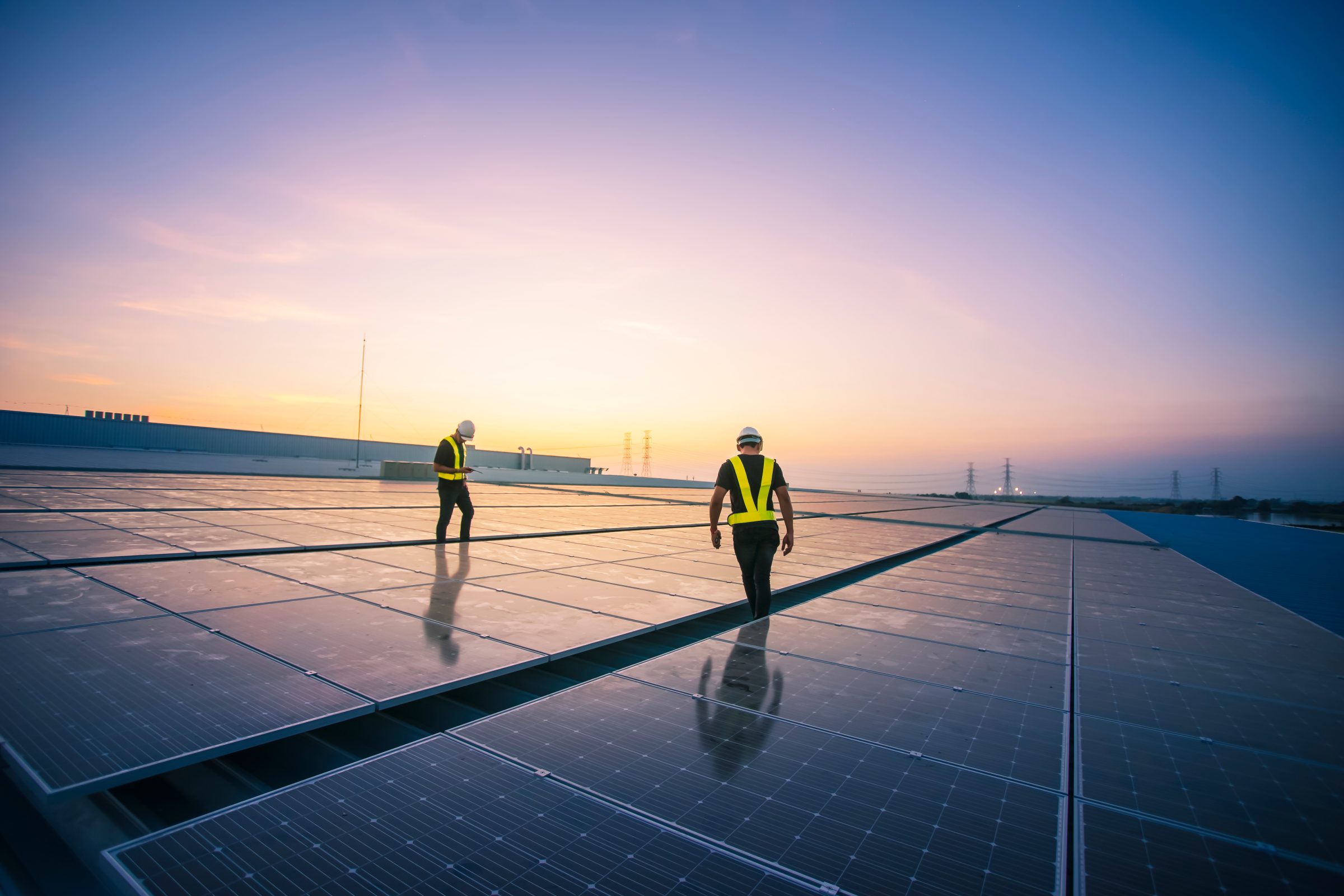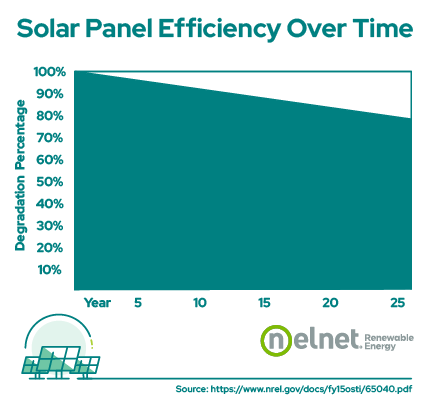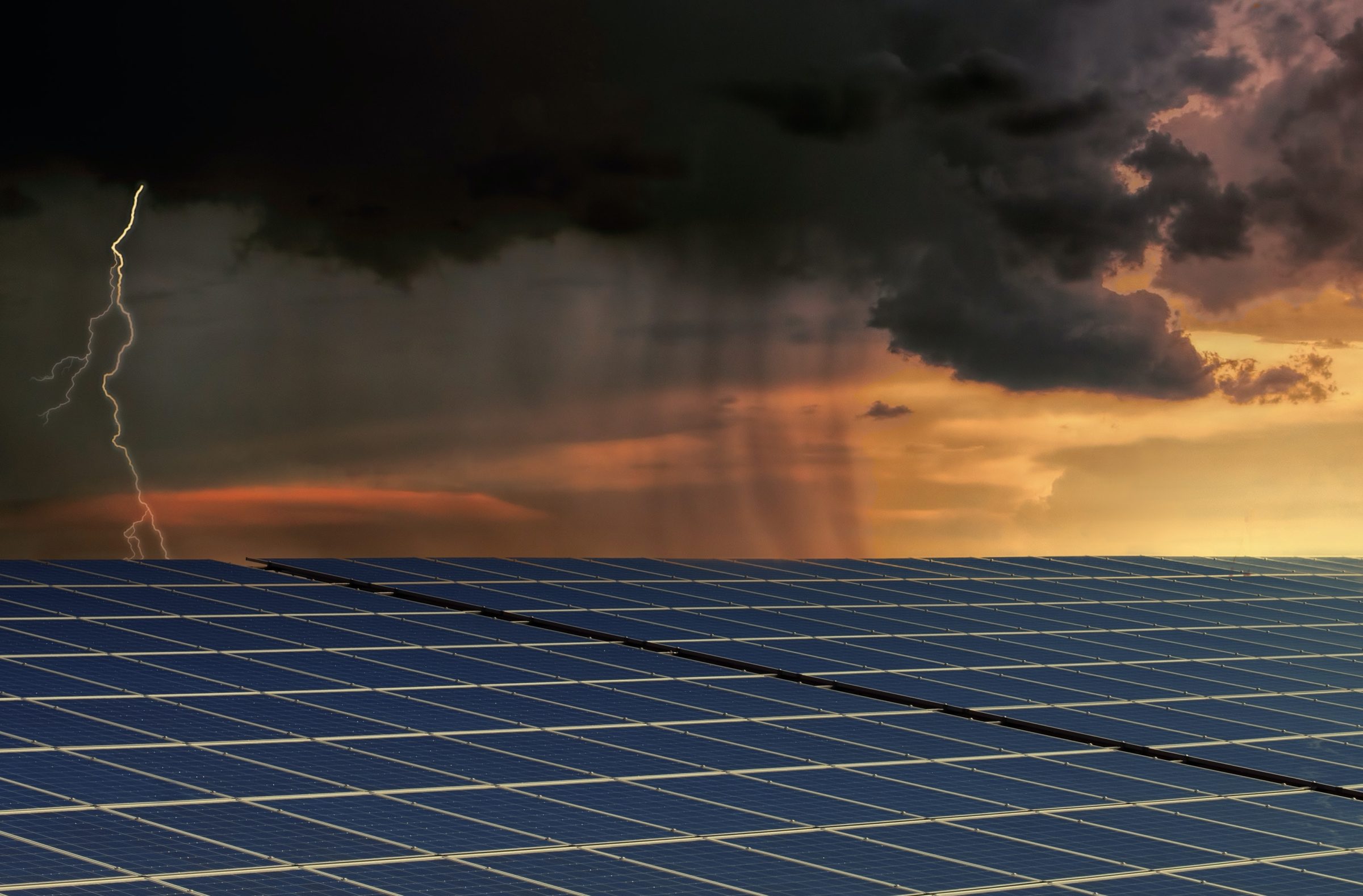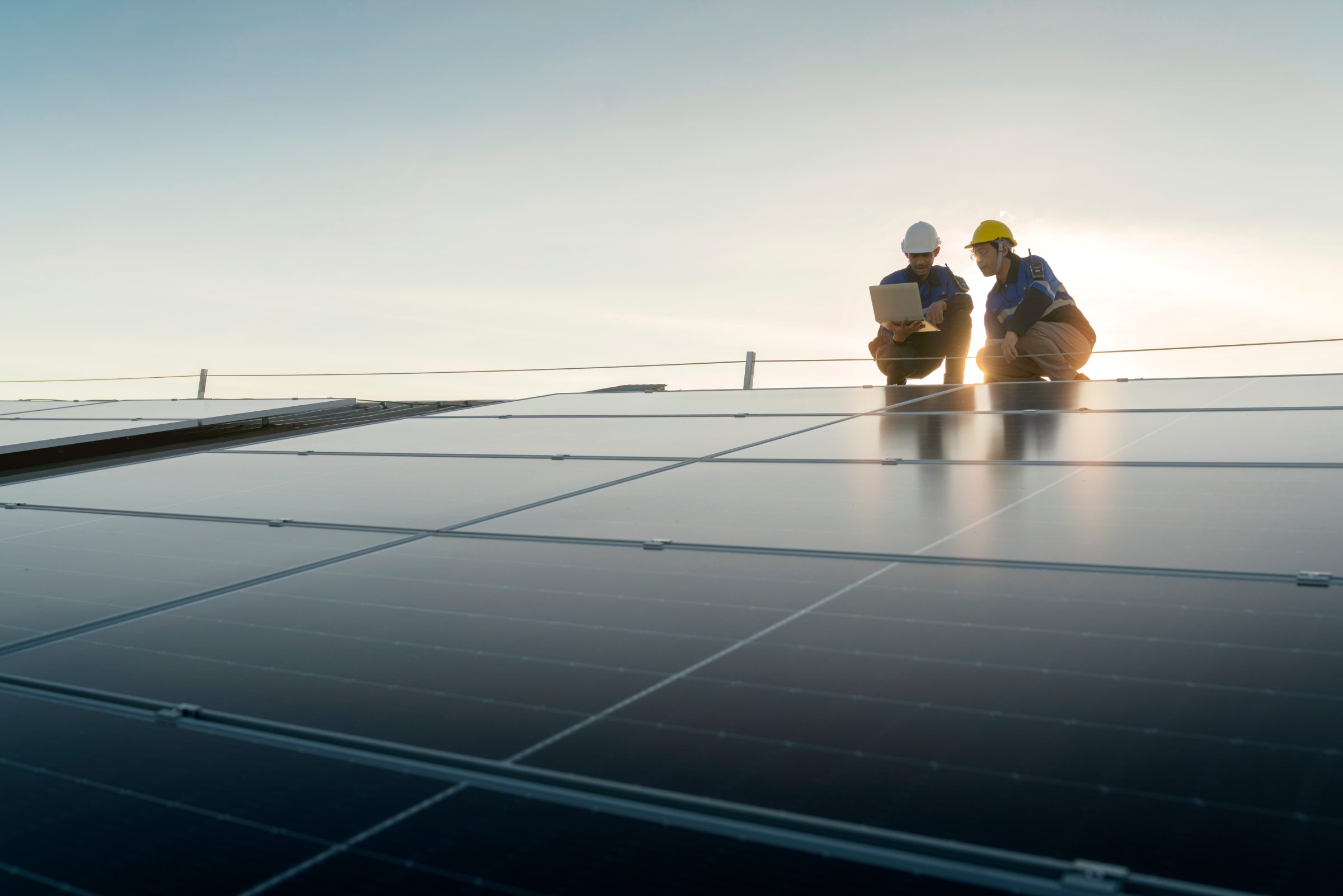How Durable are Solar Panels? (And Other Important Questions)

As commercial enterprises increasingly turn to solar power for sustainable energy solutions, concerns about the durability of solar panels persist. In the competitive world of commercial and industrial (C&I) solar, a better understanding of these myths is crucial for businesses interested in making sound decisions about solar investment.
What’s the Life Expectancy of a Solar Panel?
For businesses considering solar installations, understanding the lifespan and degradation of solar panels is paramount to evaluating the return on investment. Commercial-grade solar panels typically boast a lifespan of 25 years or more before displaying noticeable degradation. This allows businesses to have consistent energy production and receive substantial returns.
Many solar installers offer a standard 25-year warranty, aligning with the expected lifespan of the panels. After a certain period, the panels may not need to be replaced. However, they will not be able to capture sunlight as effectively. In such cases, replacement is typically recommended. All solar panels degrade over time – albeit slowly. Although they're designed to withstand environmental factors, some degradation is inevitable due to various reasons including environmental factors and technological limits. The degradation rate shows how much a solar panel’s efficiency and power decrease over time. This is typically measured as a percentage.

A study done by the National Renewable Energy Laboratory found that solar panels typically lose about 0.5% of their efficiency each year. However, this rate can range from 0.3% to 0.8% depending on the quality of the panel. This means a solar panel’s efficiency would only drop to approximately 80% to 92.5% of its original capacity after 25 years.

Do Weather Conditions Affect Solar Panels?
Businesses using solar panels, (particularly those in regions with varied weather) worry about how well the panels hold up in harsh environmental conditions. Modern solar panels can handle different climates, including extreme temperatures, UV exposure, and temperature changes. These factors can accelerate degradation.
The Midwest experiences wide-ranging temperatures, including hot summers and frigid winters. However, the Midwest’s weather conditions are generally considered more stable than other parts of the United States. This relatively moderate climate typically means that solar panels will degrade at a low or moderate rate, expanding the longevity of your solar system. This resilience underscores the suitability of solar energy for businesses in the region, offering long-term stability and performance. Now that we have some understanding of a solar panel's lifespan, let's ask some common questions about the resilience of solar panels—with answers that may surprise you.
Are Solar Panels Prone to Hail Damage?
One of the most common misconceptions about solar panels is that they are delicate and easily damaged. While solar panels are made of glass, advancements in manufacturing have made them more durable. This, however, doesn’t mean that solar panels are completely immune to damage. To ensure longevity, make sure your installer uses a panel that meets UL 61730 or IEC 61730 standards. These markings mean the panels have gone through extensive testing and can withstand hail between one inch and three inches traveling at no more than 88.3 miles per hour. These resilient panels are best for areas with frequent hail, such as the Midwest.
Do High Winds Damage Solar Panels?
Engineers also create solar panels to withstand extreme wind conditions, a crucial feature for ground-mounted systems. Manufacturers test panels rigorously, with certifications for wind speeds of up to 2,400 pascals (Pa), or about 140 miles per hour. This rating is heavily determined by proper installation, and the type of solar racking/mounting used. Mounting systems for solar panels are made to keep them securely in place on roofs or on the ground. They are tested to make sure they can handle strong winds.
Can Snow and Ice Crack Solar Panels?
Winter in the Midwest brings snow and ice, posing potential challenges for solar panel performance. However, solar panels are adept at handling snowy conditions. Solar panels can handle up to 5000 Pa of snow, which is about 112.78 pounds of force per square foot. Solar panels are strong and their dark surfaces absorb sunlight, which helps them melt snow faster than other surfaces. Additionally, people typically install solar panels at an angle, which allows snow to slide off more easily. In fact, the slick surface of solar panels often causes snow to slide off before it accumulates.
Reality: Solar Panels are Built to Last
Contrary to popular belief, solar panels are incredibly durable and have a long lifespan. Most solar panels come with warranties that guarantee optimal performance for 25 years or more. Regular maintenance and inspections can help solar panels last longer and work better. To maximize their solar investment, businesses should maintain panels and fix issues quickly.

Embrace Solar Energy for Commercial Success
In commercial solar, it’s important to debunk myths about durability so businesses can make informed decisions about renewable energy. Commercial clients can confidently invest in solar panels because they are resilient and can withstand different weather conditions. This investment offers long-term benefits for their operations and the environment.
At Nelnet Renewable Energy, we’re committed to providing customers with reliable solar solutions that harness the power of the sun and quality products that withstand tough conditions and have a long lifespan. By addressing misconceptions and providing accurate information, we help individuals and businesses make informed choices about using solar energy for a sustainable future.